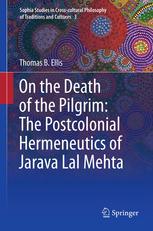

Most ebook files are in PDF format, so you can easily read them using various software such as Foxit Reader or directly on the Google Chrome browser.
Some ebook files are released by publishers in other formats such as .awz, .mobi, .epub, .fb2, etc. You may need to install specific software to read these formats on mobile/PC, such as Calibre.
Please read the tutorial at this link: https://ebookbell.com/faq
We offer FREE conversion to the popular formats you request; however, this may take some time. Therefore, right after payment, please email us, and we will try to provide the service as quickly as possible.
For some exceptional file formats or broken links (if any), please refrain from opening any disputes. Instead, email us first, and we will try to assist within a maximum of 6 hours.
EbookBell Team

4.0
96 reviewsThis searching examination of the life and philosophy of the twentieth-century Indian intellectual Jarava Lal Mehta details, among other things, his engagement with the oeuvres of Martin Heidegger, Hans-Georg Gadamer, and Jacques Derrida. It shows how Mehta’s sense of cross-cultural philosophy and religious thought were affected by these engagements, and maps the two key contributions Mehta made to the sum of human ideas. First, Mehta outlined what the author dubs a ‘postcolonial hermeneutics’ that uses the ‘ethnotrope’ of the pilgrim to challenge the philosophical hermeneutic emphasis on supplementation and augmentation. For Mehta, the hermeneutic encounter ruptures, rather than supplements, the self. Secondly, Mehta extended this concept of hermeneutics to interrogate the Hindu tradition, arriving at the concept of the ‘negative messianic’. In contrast to Derrida's emphasis on the 'one to come', Mehta shows how the Hindu bhakti model represents the very opposite, that is, the 'withdrawn other,' identifying thereby the ethical pitfalls of deconstructivism's emphasis on the messianic tradition. This is the only full-length study in English of this high-profile Hindu philosopher.